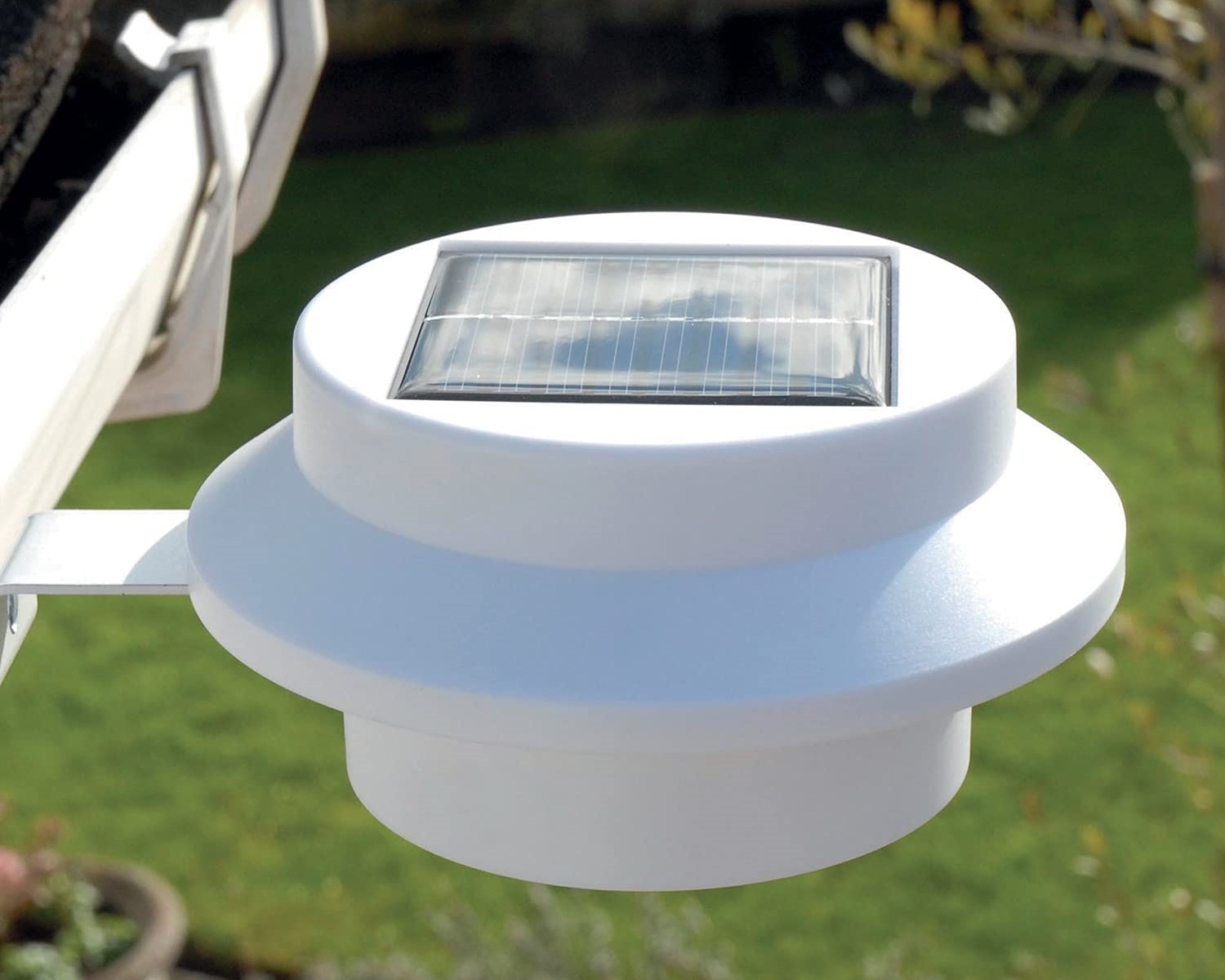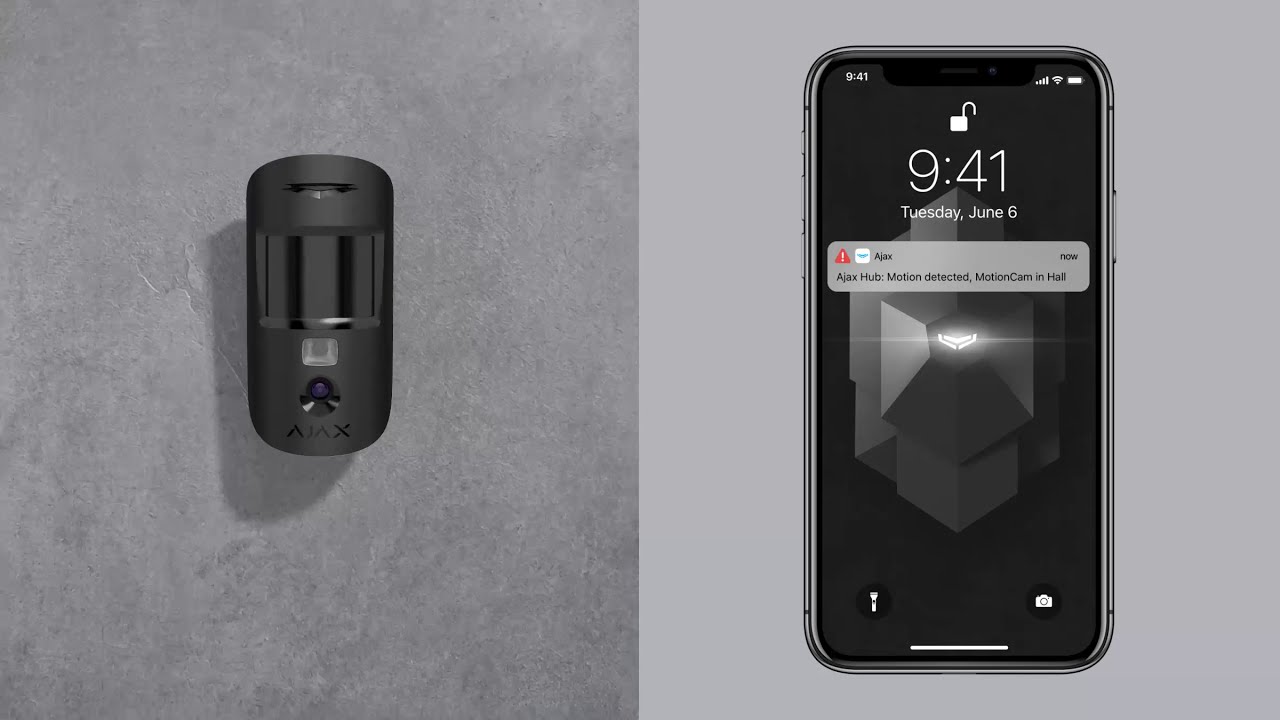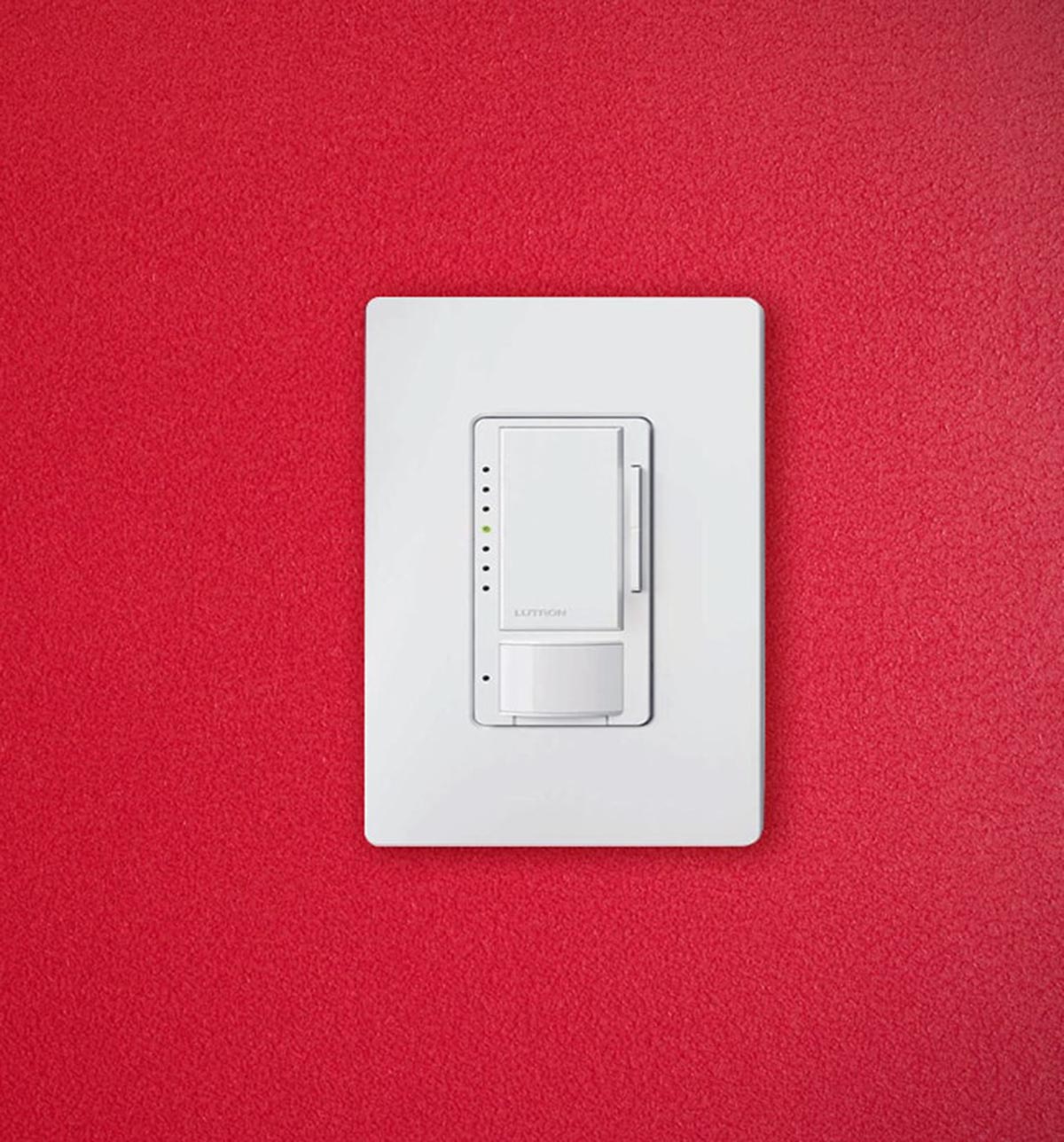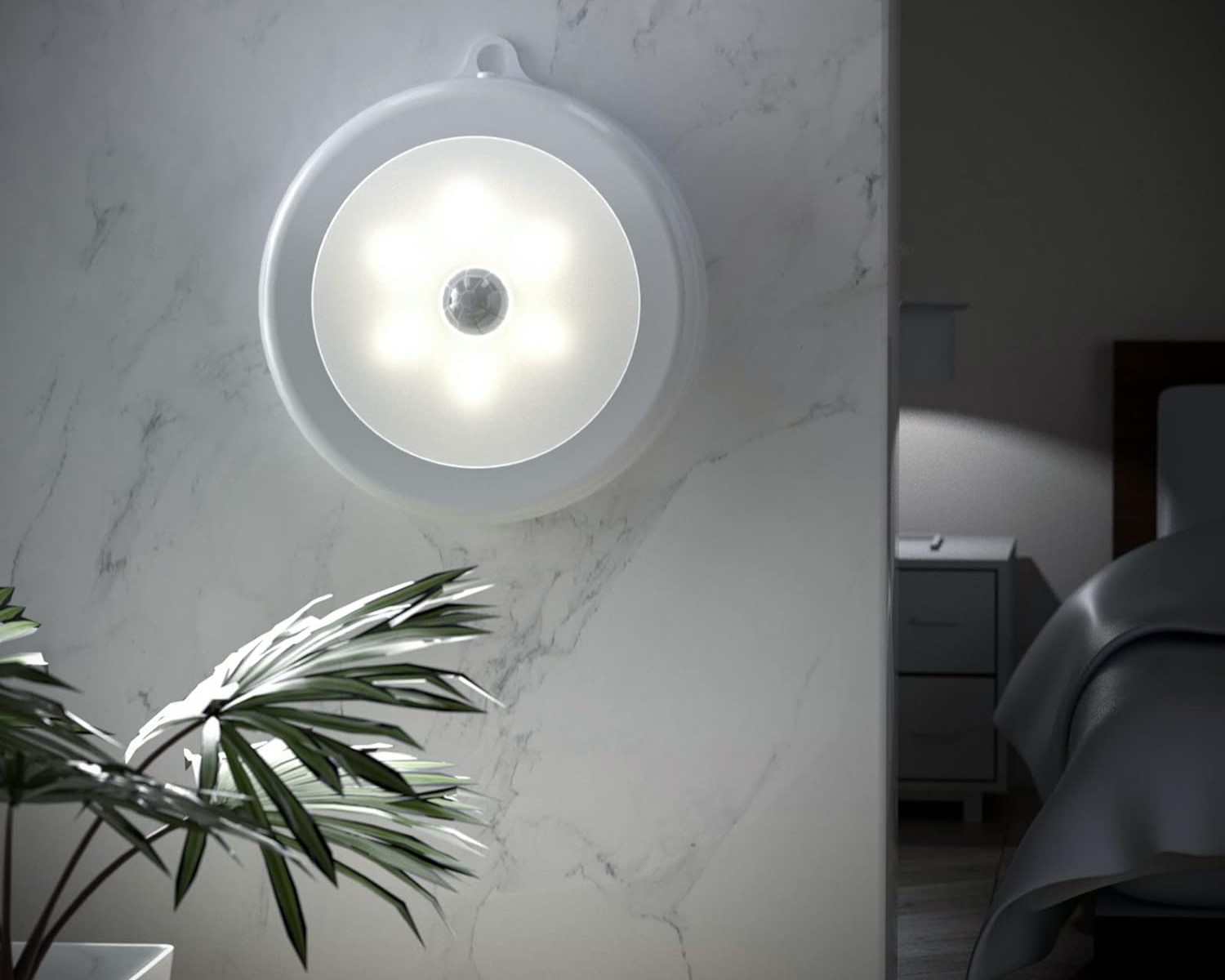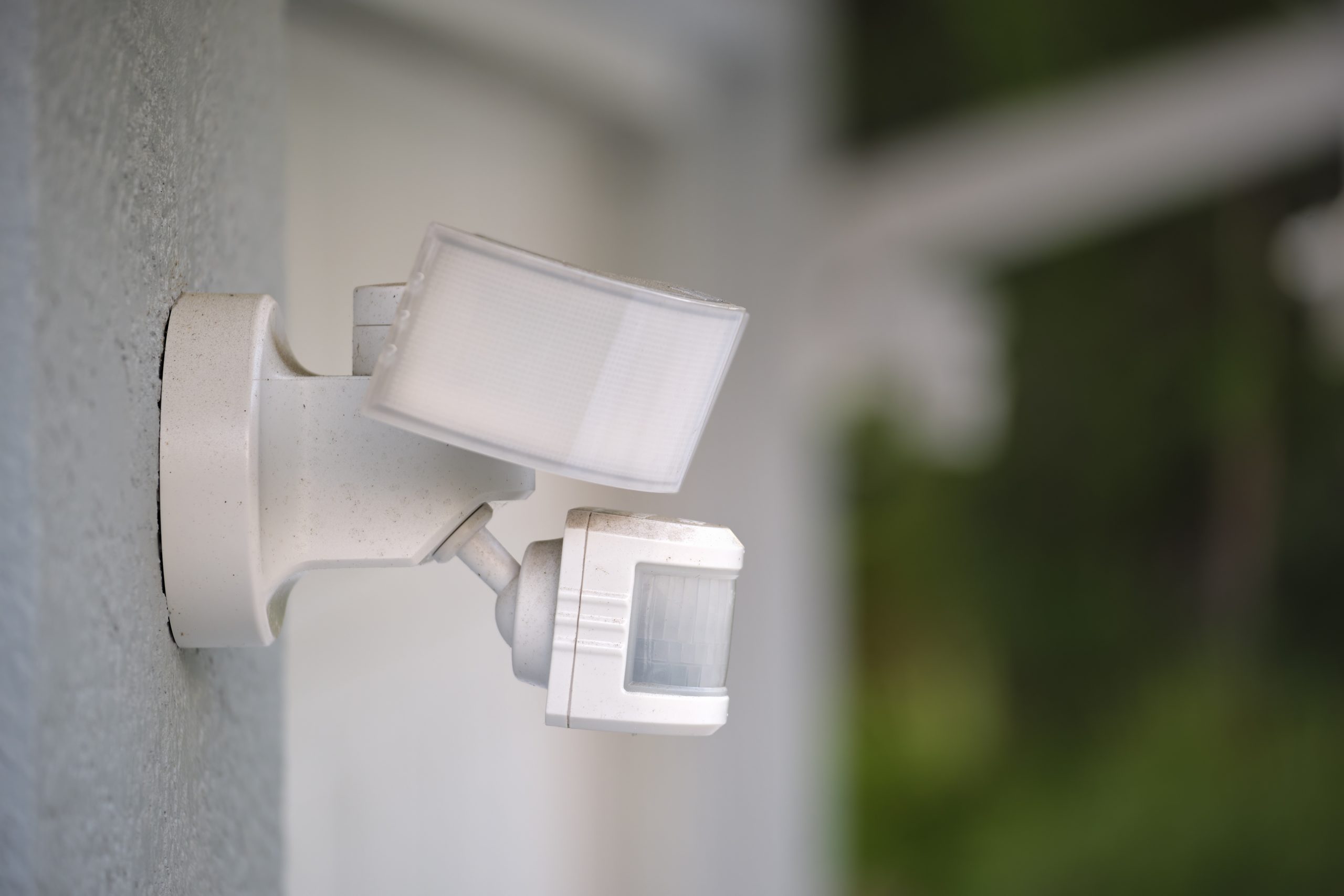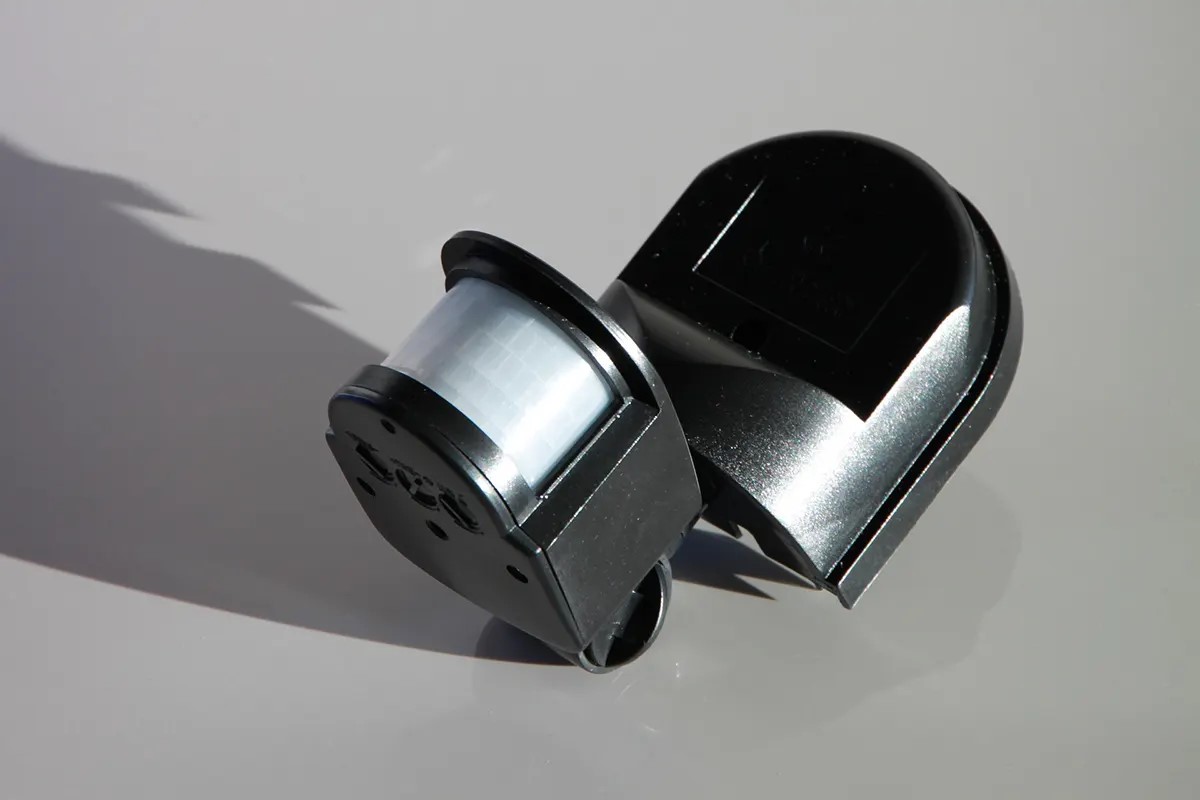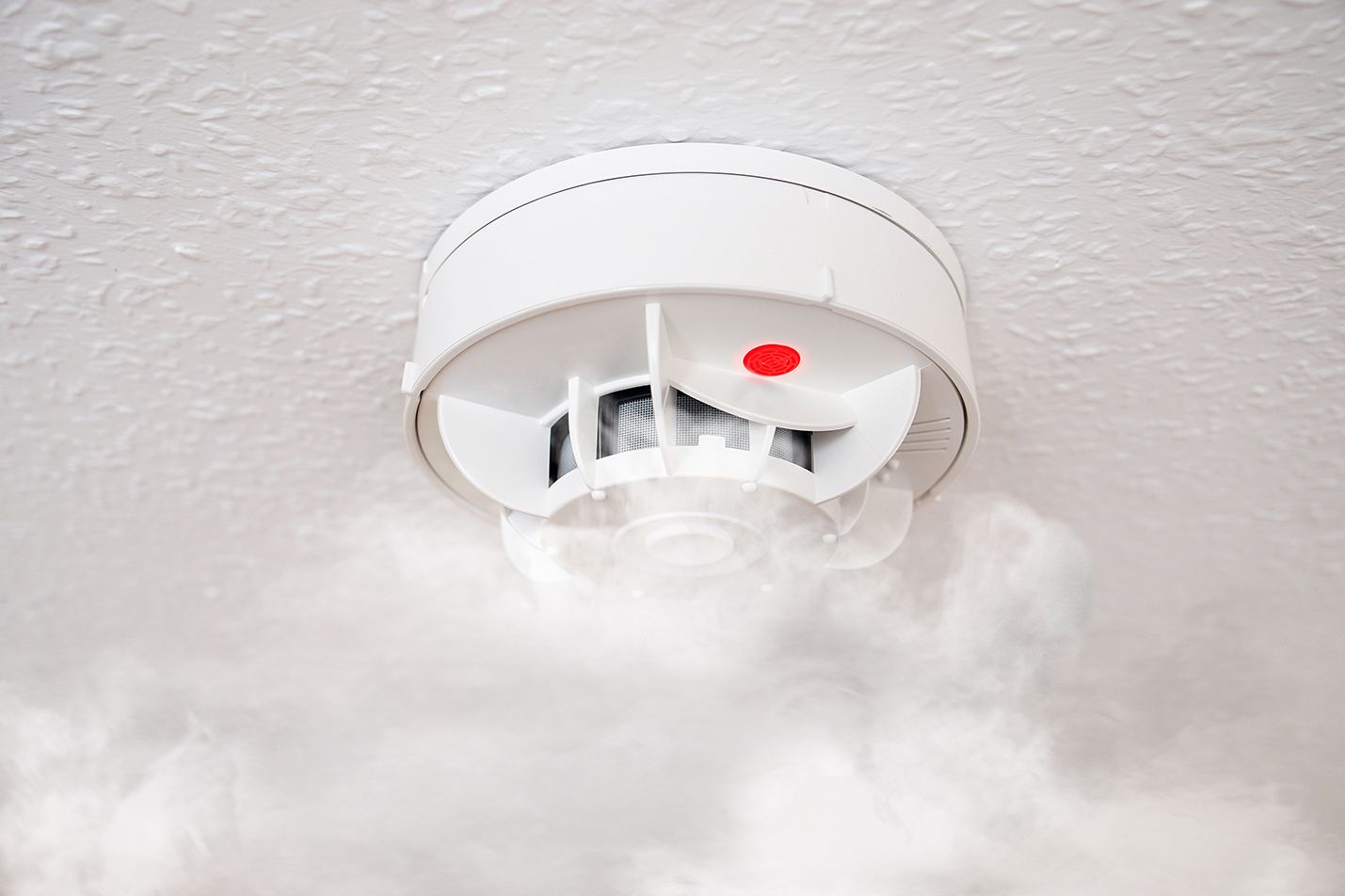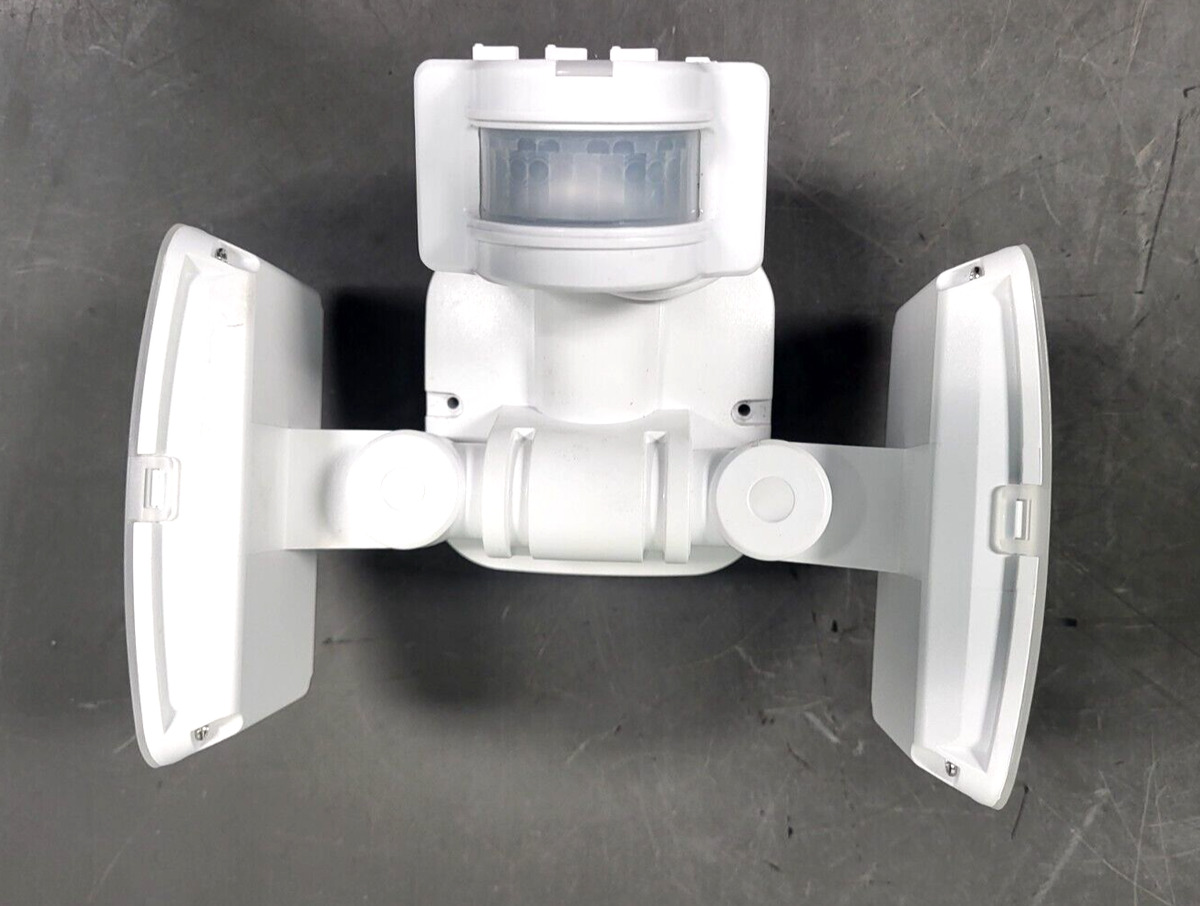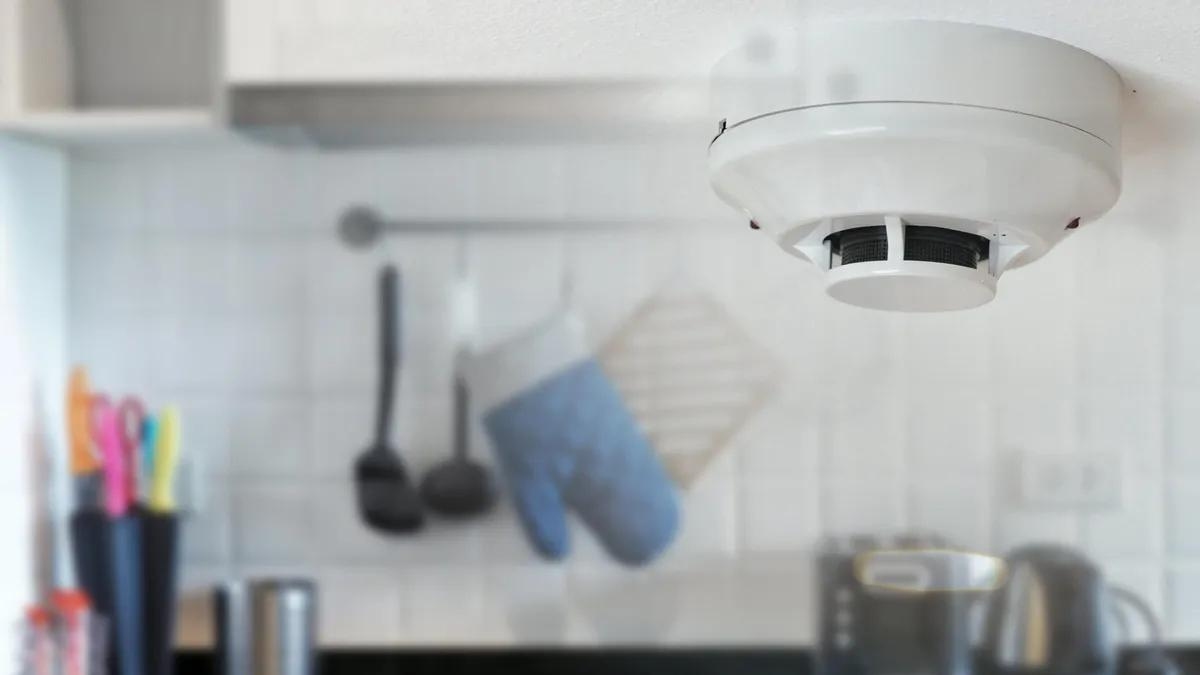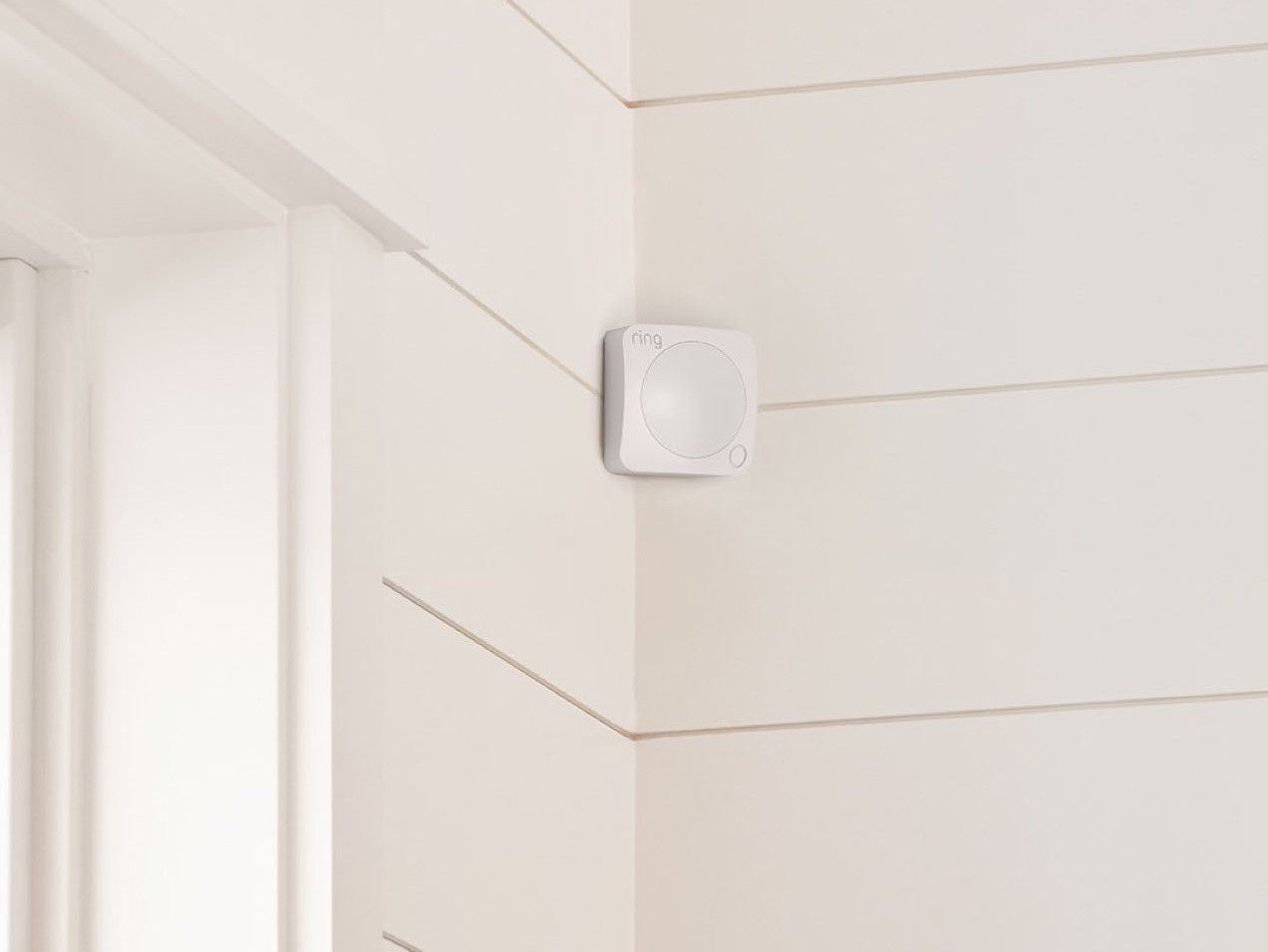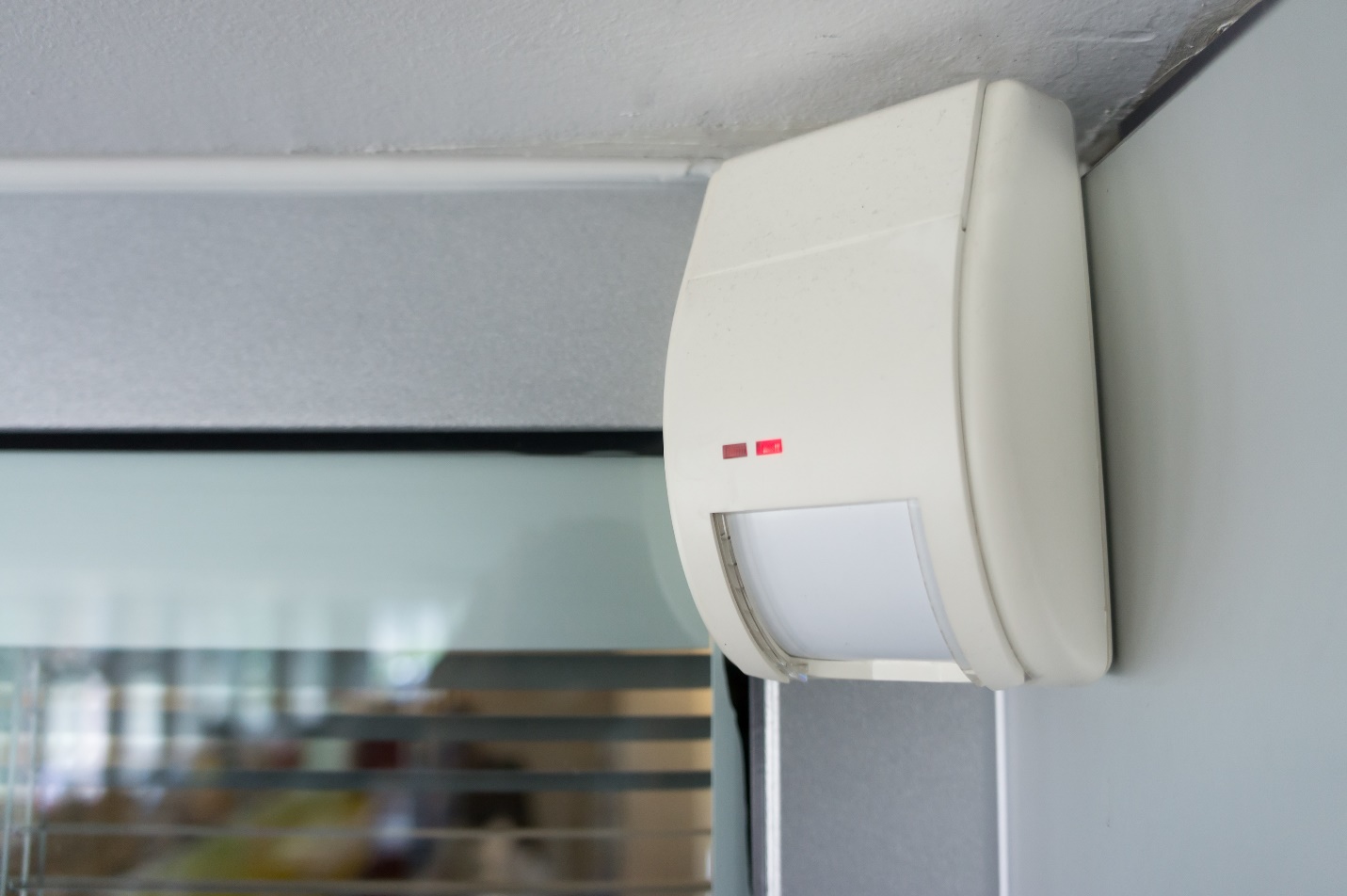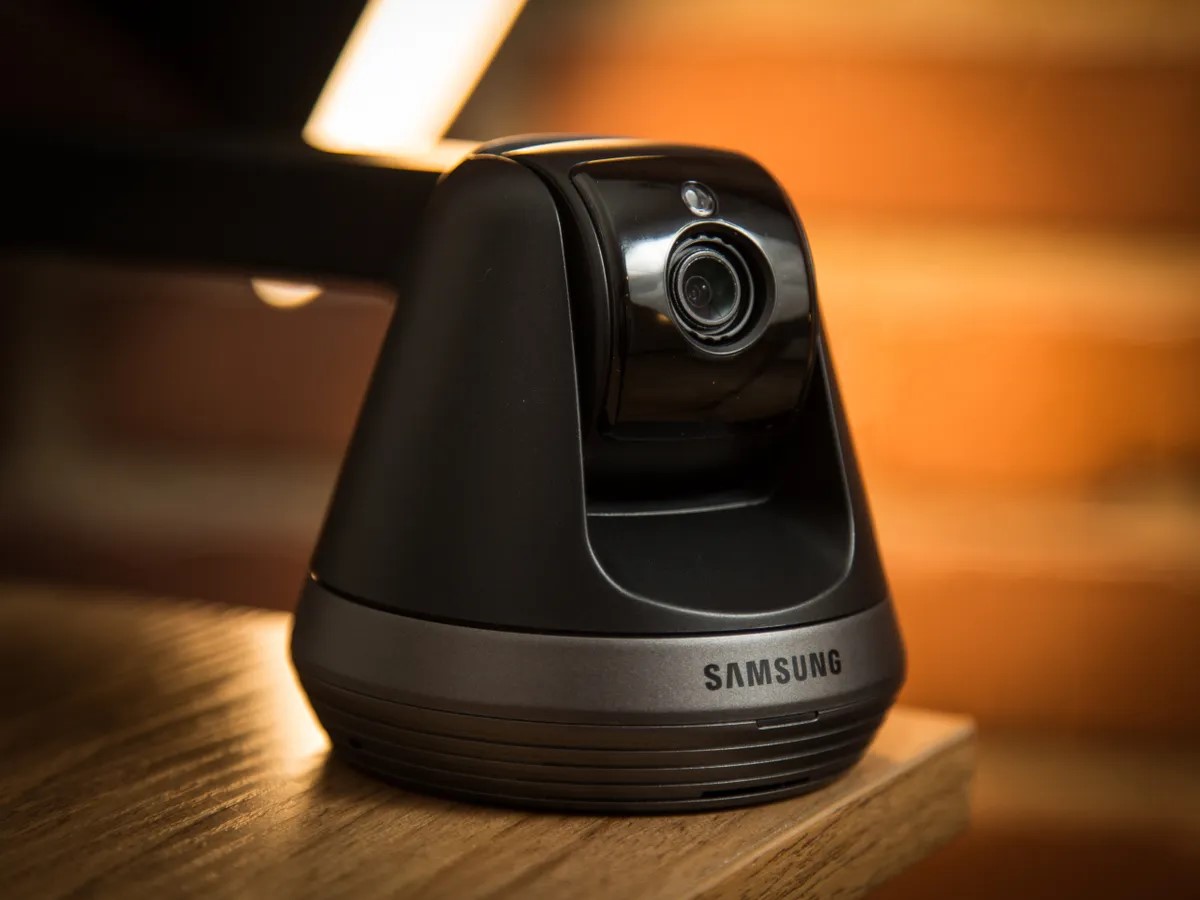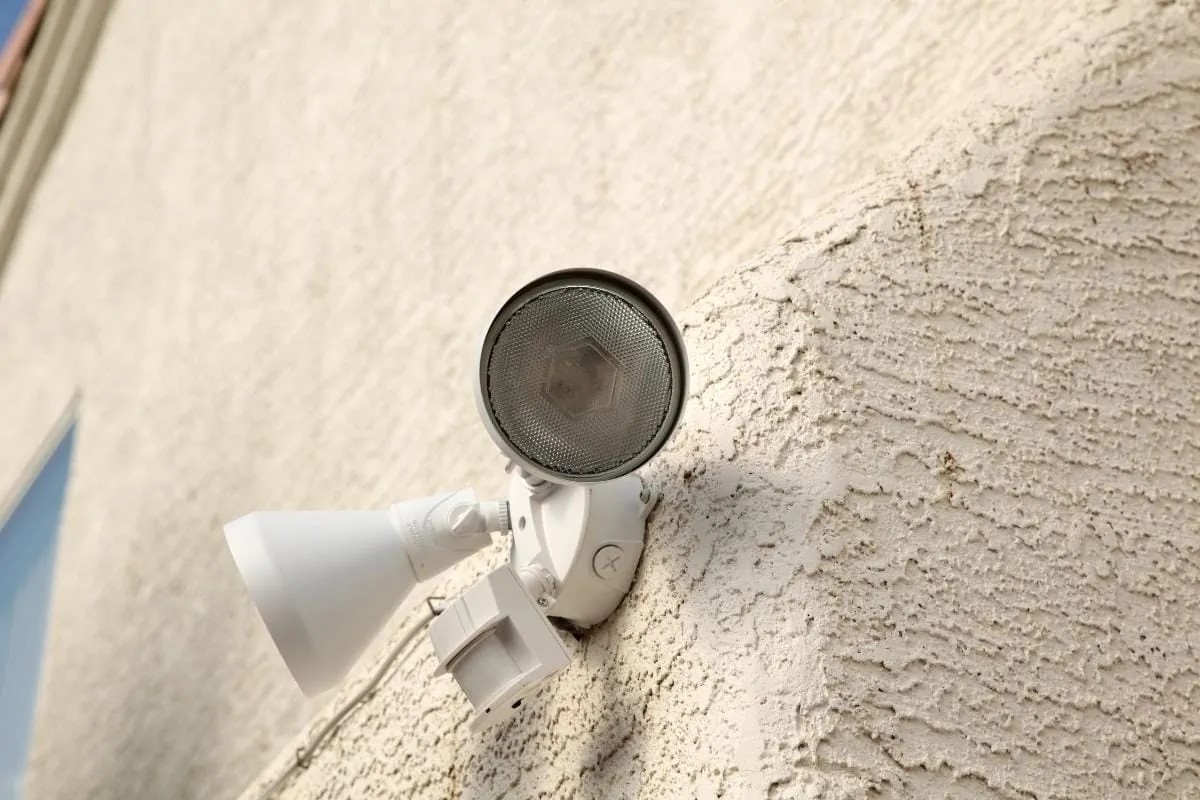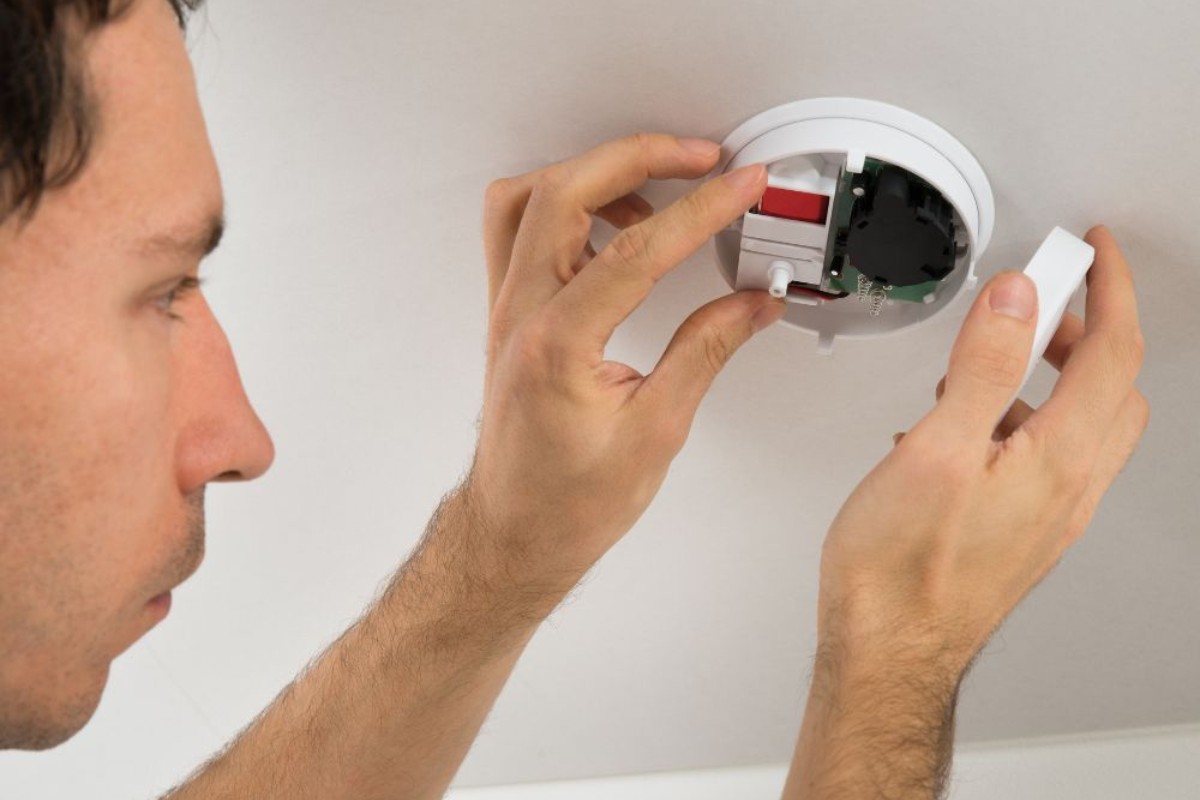Home>Home Security and Surveillance>Why Does Rain Set Off Motion Detector
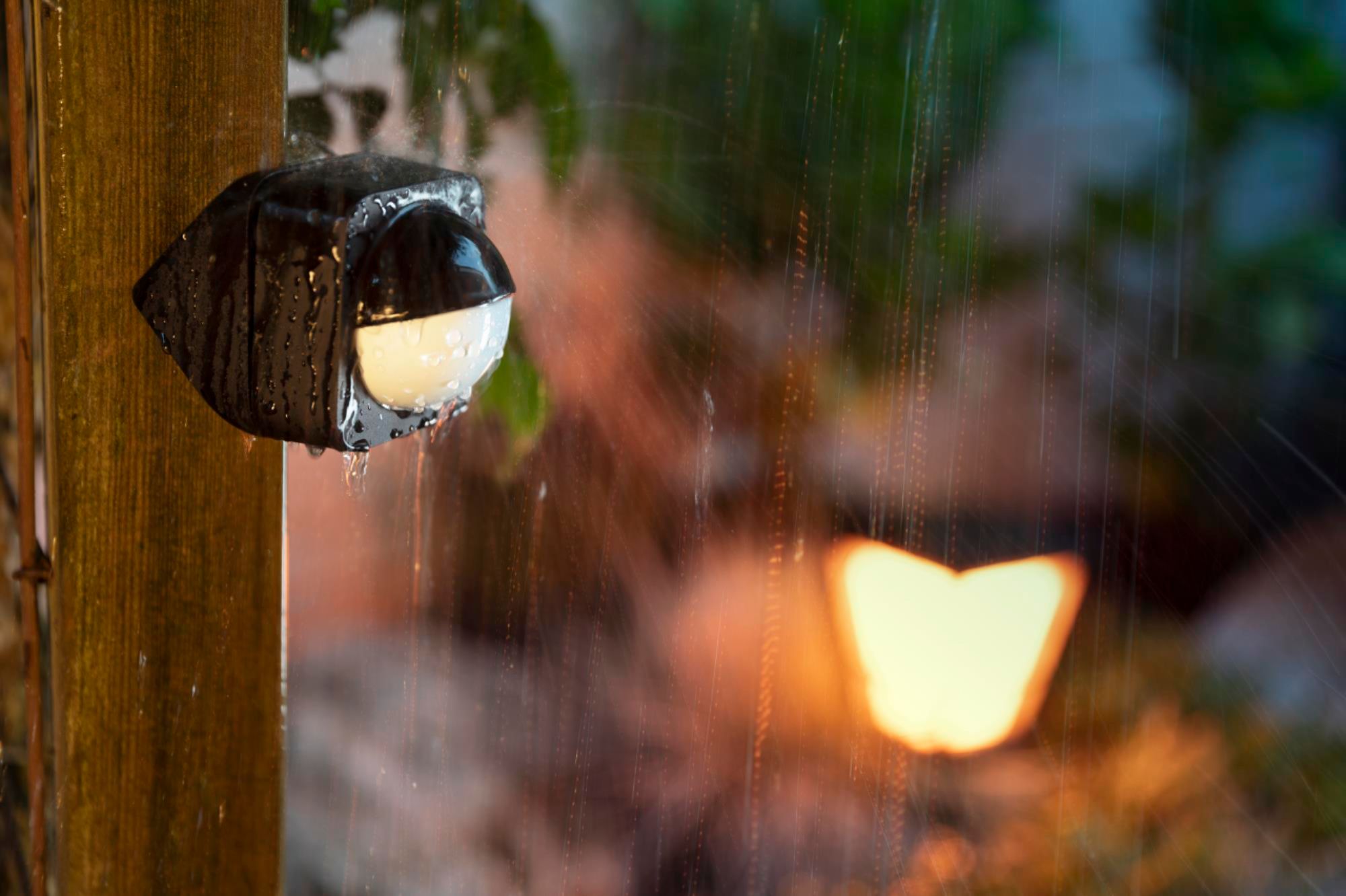

Home Security and Surveillance
Why Does Rain Set Off Motion Detector
Modified: March 6, 2024
Discover why rain can trigger motion detectors and learn how to enhance your home security and surveillance system against this common issue.
(Many of the links in this article redirect to a specific reviewed product. Your purchase of these products through affiliate links helps to generate commission for Storables.com, at no extra cost. Learn more)
Introduction
Welcome to our comprehensive guide on why rain can set off motion detectors. If you have ever wondered why your home security system suddenly becomes activated during a heavy downpour, you are not alone. Many homeowners are surprised when rain triggers their motion detectors and sets off false alarms. In this article, we will explore the reasons behind this phenomenon and provide tips on how to minimize false alarms in rainy conditions.
Motion detectors are an integral part of home security and surveillance systems. They provide an extra layer of protection by detecting any movement within a specific range and triggering an alarm. However, they can sometimes be overly sensitive and respond to environmental factors such as rain.
To understand why rain can set off motion detectors, it is essential to dive into how these devices work. Motion detectors come in various forms, including passive infrared (PIR), microwave, and dual technology detectors. Each type employs different sensing mechanisms, but they all rely on detecting changes in the infrared energy or microwave signal within their coverage area.
Due to their reliance on detecting changes, motion detectors can be affected by environmental factors. Rain, in particular, can interfere with the infrared or microwave signals, leading to false detections and unnecessary alarms.
Rain affects motion detectors in several ways. First, raindrops can scatter or refract the infrared energy that a PIR detector relies on. This scattering can cause the detector to register false movements, triggering an alarm. Similarly, rain can also absorb or attenuate the microwave signal used in microwave-based detectors, leading to false detections.
Additionally, rain can produce reflections, especially on smooth surfaces like windows or glass doors. These reflections can confuse the motion detector, as it perceives them as movement within its coverage area. As a result, the motion detector may trigger an alarm, even though there is no real threat.
Factors such as the intensity of rain, the direction of raindrops, and the distance between the motion detector and the rain can all influence whether rain will set off the detector. If the rain is heavy and directly hitting the detector, the chances of false alarms increase significantly. However, even light rain or rain blowing in a certain direction can also cause false detections.
False alarms triggered by rain can be frustrating and can potentially lead to unnecessary emergency responses or dispatches. Fortunately, there are steps you can take to minimize false alarms during rainy conditions. In the next sections, we will discuss some common issues with rain and motion detectors and provide practical tips to help you mitigate false alarms.
By understanding why rain can set off motion detectors and implementing the recommended strategies, you can maintain the effectiveness and reliability of your home security system, even in wet weather conditions. Let’s explore the factors influencing rain-triggered alarms and learn how to prevent false detections caused by rain.
Key Takeaways:
- Rain can set off motion detectors due to its impact on the sensors, causing false alarms. Factors like rain intensity, direction, and sensor sensitivity influence the likelihood of false activations.
- To minimize false alarms in rainy conditions, adjust sensitivity settings, shield the detector, angle mount it, use curtains or blinds, maintain weatherproofing, perform regular testing, consider dual technology detectors, and consult with professionals if needed.
Understanding Motion Detectors
Motion detectors are crucial components of home security systems, designed to detect and alert homeowners of any movement within their premises. Understanding how motion detectors work is essential in recognizing why rain can sometimes trigger false alarms.
There are several types of motion detectors commonly used in home security systems, including passive infrared (PIR), microwave, and dual technology detectors.
Passive infrared (PIR) detectors work by detecting changes in infrared energy. They have one or more sensors that detect the heat emitted by objects within their coverage area. When a person or animal passes through the detector’s field of view, the change in infrared energy triggers the alarm.
Microwave detectors, on the other hand, emit microwave signals and measure the reflection of those signals off objects within their range. When there is a change in the reflection pattern caused by movement, the detector is triggered.
Dual technology detectors combine both PIR and microwave technologies. By using both detection methods simultaneously, they provide enhanced accuracy and reduce the likelihood of false alarms caused by environmental factors alone.
Regardless of the type of motion detector, they all have varying degrees of sensitivity that can be adjusted to suit different environments and security needs. Sensitivity settings determine how easily the detector will be triggered by movement, including external factors like rain.
It is important to note that sensitivity settings are a trade-off between accurately detecting real threats while minimizing false alarms. When sensitivity is set too low, the motion detector may not detect subtle movements, compromising the effectiveness of the security system. Conversely, if sensitivity is set too high, the risk of false alarms, including those triggered by rain, increases.
Although motion detectors are designed to be reliable, they can sometimes be overly sensitive to environmental factors such as rain, resulting in false alarms. Raindrops can interfere with the infrared or microwave signals that motion detectors rely on to detect movement, causing them to trigger false detections.
In the next sections, we will delve deeper into how rain affects motion detectors and explore the specific factors that influence rain-triggered alarms. By understanding these mechanisms, you will be better equipped to tackle false alarms caused by rain and make necessary adjustments to your home security system.
How Motion Detectors Work
Motion detectors are integral components of home security systems, working tirelessly to detect any movement within their designated areas. Understanding how motion detectors work is crucial in comprehending why rain can sometimes trigger false alarms.
There are various types of motion detectors commonly used in home security systems, including passive infrared (PIR), microwave, and dual technology detectors.
Passive infrared (PIR) detectors operate by sensing changes in infrared energy. They contain one or more sensors that detect heat emitted by objects within their coverage area. When an individual or object passes through the field of view, altering the infrared energy pattern, the PIR detector recognizes this change and triggers the alarm.
Microwave detectors, on the other hand, emit microwave signals and measure the reflection of those signals off objects within their range. These detectors monitor the frequency of the reflected signals and identify any discrepancies caused by movement. When the detector detects a change in the reflection pattern, it will activate the alarm.
Dual technology detectors combine both PIR and microwave technologies, providing a more robust and reliable detection system. By using both detection methods simultaneously, they enhance accuracy and reduce the likelihood of false alarms caused by environmental factors alone.
Regardless of the type of motion detector used, they all have sensitivity settings that can be adjusted. These settings determine the threshold at which the detector will be triggered by movement, including external factors like rain.
However, sensitivity settings are a delicate trade-off between detecting genuine threats and minimizing false alarms. When the sensitivity is set too low, the motion detector may not detect subtle movements, compromising the effectiveness of the security system. Conversely, if sensitivity is set too high, the risk of false alarms, including those caused by rain, increases.
Rain can interfere with the operation of motion detectors due to its impact on infrared or microwave signals. Raindrops can scatter or refract the infrared energy that PIR detectors rely on, causing false movements to be registered and triggering false alarms. Similarly, rain can absorb or attenuate the microwave signal used in microwave-based detectors, resulting in false detections.
Reflections caused by rain can also confuse motion detectors, particularly when rain falls on smooth surfaces like windows or glass doors. These reflections can be perceived as movement within the detector’s coverage area, leading to false alarms.
In the next sections, we will explore the specific factors influencing rain-triggered alarms and discuss common issues with rain and motion detectors. By understanding these mechanisms, we can implement effective strategies to minimize false alarms in rainy conditions.
Sensitivity to Environmental Factors
Motion detectors, while effective in detecting movement, can sometimes be susceptible to environmental factors. Rain is one such factor that can trigger false alarms and disrupt the reliability of motion detection systems. Understanding the sensitivity of motion detectors to environmental conditions is key to addressing false alarms caused by rain.
There are several environmental factors that can interfere with the operation of motion detectors. These factors include changes in temperature, strong winds, direct sunlight, and of course, rain. Each of these elements can affect the accuracy and reliability of motion detection systems, potentially leading to false activations.
When it comes to rain, motion detectors can face challenges due to the impact of raindrops on their sensing mechanisms. Raindrops can scatter or refract the infrared energy that passive infrared (PIR) detectors rely on. This scattering effect can cause false movements to be registered, resulting in false alarms.
Furthermore, rain can absorb or attenuate the microwave signal used by microwave-based detectors. As a result, the detector may interpret the change in signal caused by rain as movement, triggering a false alarm.
In addition to the direct impact on the sensing mechanisms, rain can produce reflections that affect motion detectors. Drops of rain falling on smooth surfaces like windows or glass doors can create reflections that confuse the detector, making it perceive these reflections as movement within its coverage area.
It’s important to note that the sensitivity of motion detectors can be adjusted to mitigate the impact of environmental factors like rain. By lowering the sensitivity, the detectors become less responsive to subtle movements and external elements. However, finding the right balance is crucial to ensure that the detector remains effective in detecting genuine threats while minimizing false activations caused by rain or other environmental factors.
When adjusting the sensitivity of your motion detector, consider factors such as the location of the detector, the typical weather conditions in your area, and the level of security required for your specific needs. Experimenting with different sensitivity settings and monitoring the system’s response during rainy conditions can help you find the optimal balance.
In the next sections, we will explore how rain specifically affects motion detectors and discuss common issues that arise when rain triggers false alarms. We will also provide practical tips to help you minimize false activations in rainy conditions, ensuring the reliability and effectiveness of your home security system.
The Role of Rain in Motion Detector Activation
Rain is one of the environmental factors that can have a significant impact on motion detector activation. Understanding how rain affects these detectors is essential in addressing false alarms and ensuring the proper functioning of your home security system.
One of the primary reasons rain can trigger motion detectors is its influence on the sensing mechanisms used by these devices. Both passive infrared (PIR) and microwave-based detectors can be affected by raindrops, leading to false detections.
In the case of PIR detectors, raindrops can scatter or refract the infrared energy that the detectors rely on. This scattering effect can create false movements within the detector’s coverage area, resulting in false alarms being triggered. Raindrops act as temporary heat sources and can confuse the detector into thinking that there is a genuine movement in its field of view.
For microwave detectors, rain can absorb or attenuate the microwave signal used by these devices. As a result, the detector may interpret the change in signal caused by rain as movement, causing false activations. Rain can create changes in the reflected signal pattern, which the detector perceives as movement and initiates an alarm.
Reflections also play a role in rain-triggered false alarms. When rain falls on smooth surfaces like windows or glass doors, it can create reflections that confuse the motion detector. These reflections appear as movement within the detector’s coverage area, leading to false detections and unnecessary activations.
The intensity and direction of rain can further influence motion detector activation. Heavy rain, particularly when directly hitting the detector, increases the chances of false alarms. The raindrops have a more significant impact on the sensing mechanisms, resulting in a higher likelihood of false detections.
However, even light rain or rain blowing in a particular direction can trigger false alarms. Raindrops that are blown into the path of the motion detector can create false movements or reflections, causing the detector to activate.
It is important to note that the impact of rain on motion detectors can vary depending on the specific type and model of the detector. Different detectors may have different sensitivities to rain and different mechanisms to reduce false activations caused by environmental factors.
In the next sections, we will explore common issues that arise when rain triggers false alarms and provide practical tips to minimize false activations in rainy conditions. By understanding the role of rain in motion detector activation, you can take appropriate measures to maintain the reliability and effectiveness of your home security system.
Make sure your motion detector is properly positioned and angled to avoid false triggers from rain. Adjust the sensitivity settings if possible to reduce the impact of rain on the sensor.
Factors Influencing Rain-triggered Alarms
Several factors influence whether rain will trigger false alarms in motion detectors. Understanding these factors can help you determine the specific conditions that may lead to rain-triggered activations and take appropriate measures to minimize false alarms.
1. Rain Intensity: The intensity of rain plays a significant role in the likelihood of false alarms. Heavy rain, especially when directly hitting the motion detector, increases the chances of false detections. The impact of raindrops on the sensing mechanisms is more significant, creating a higher risk of false activations.
2. Rain Direction: The direction of rain can also influence the occurrence of false alarms. Rain that is blowing into the path of the motion detector can create false movements or reflections. Even light rain or rain blowing at an angle can cause false activations by interfering with the detector’s operation.
3. Distance between Detector and Rain: The distance between the motion detector and the rain can affect the likelihood of false alarms. When the rain is close to the detector, such as during a heavy downpour, there is a higher chance of raindrops directly impacting the sensing mechanisms and triggering false detections.
4. Sensor Sensitivity: The sensitivity setting of the motion detector is a crucial factor in rain-triggered alarms. Higher sensitivity increases the chance of false activations in rainy conditions, as the detector becomes more responsive to subtle movements and environmental factors. Adjusting the sensitivity level to an appropriate setting can help mitigate false alarms caused by rain.
5. Location of the Detector: The placement of the motion detector can influence its susceptibility to rain-triggered false alarms. Detectors installed near areas prone to rain exposure, such as windows or doors, may be more affected by raindrops or reflections. Consider adjusting the position of the detector or installing additional shielding to minimize the impact of rain.
6. Nature of Surveillance Area: The physical characteristics of the surveillance area can also contribute to rain-triggered false alarms. Smooth surfaces like windows or glass doors can create reflections when rain falls on them, confusing the detector and leading to false detections. Taking steps to mitigate these reflections, such as using curtains or blinds, can help reduce false activations in rainy conditions.
7. Quality and Design of Motion Detector: The quality and design of the motion detector itself can impact its susceptibility to rain-triggered false alarms. Higher-quality detectors may have better mechanisms to filter out false activations caused by rain or environmental factors. Understanding the capabilities of your detector can help you choose the right model for your specific needs.
By considering these various factors, you can gain insight into why rain may trigger false alarms in your motion detector. Implementing appropriate measures based on these factors can help minimize false activations and maintain the reliability and effectiveness of your home security system, even during rainy conditions.
Common Issues with Rain and Motion Detectors
Rain can present several common issues when it comes to motion detectors, leading to false alarms and potential disruptions in home security systems. Being aware of these issues can help you address them effectively and optimize the performance of your motion detector in rainy conditions.
1. False Detections: One of the most prevalent issues is false detections caused by rain. Raindrops can scatter or refract the infrared energy that passive infrared (PIR) detectors rely on, resulting in the detector registering false movements and triggering alarms. Similarly, rain can absorb or attenuate the microwave signal used by microwave-based detectors, leading to false activations.
2. Reflections: Rain falling on smooth surfaces like windows or glass doors can create reflections that confuse motion detectors. These reflections can be mistaken as movement within the detector’s coverage area, triggering false alarms. Taking measures to mitigate reflections, such as using curtains or blinds, can help reduce false activations in rainy conditions.
3. Sensitivity Issues: The sensitivity setting of a motion detector can contribute to false alarms during rain. If the sensitivity is set too high, the detector becomes more prone to false activations caused by raindrops or reflections. Adjusting the sensitivity level to an appropriate setting can help mitigate these false alarms.
4. Weatherproofing Concerns: Rain can pose a challenge to motion detectors that are not properly weatherproofed. Water ingress into the detector’s electronics can lead to malfunctions or even permanent damage. It is essential to choose motion detectors that are designed to withstand outdoor conditions and have adequate weatherproofing measures in place.
5. Accuracy Reduction: Rain and other environmental factors can reduce the accuracy of motion detection systems. The interference caused by raindrops or changing reflections can make it more challenging for the detector to accurately distinguish between genuine threats and false movements. This reduction in accuracy can compromise the overall effectiveness of the security system.
6. Time and Resource Waste: Regular false alarms triggered by rain can waste valuable time and resources. False alarms may result in unnecessary emergency responses or dispatches, causing inconvenience for homeowners and potentially straining local emergency services. Addressing false alarms caused by rain can help prevent these time and resource wastages.
By understanding these common issues, you will be better equipped to address and mitigate false alarms triggered by rain. Implementing strategies to minimize false activations can help ensure the effectiveness and reliability of your motion detector, maintaining the security of your home even during rainy weather.
Tips for Minimizing False Alarms in Rainy Conditions
Experiencing false alarms triggered by rain can be frustrating and potentially impact the reliability of your home security system. However, there are several tips you can follow to minimize false alarms and ensure the effectiveness of your motion detector during rainy conditions:
- Adjust Sensitivity Settings: Experiment with different sensitivity levels to find the optimal setting that balances effective detection with minimizing false alarms. Lowering the sensitivity slightly can help reduce the impact of rain and reflections without compromising the overall effectiveness of the motion detector.
- Shield the Detector: Consider shielding the motion detector from direct exposure to rain. Install a waterproof cover or place the detector under a sheltered area to minimize the chances of raindrops directly hitting the detector’s sensors.
- Angle Mount the Detector: Adjust the angle of the motion detector to reduce the likelihood of rain impacting the sensors. Tilt the detector slightly downwards so that raindrops are less likely to directly hit the sensing area.
- Proper Positioning: Ensure that the motion detector is strategically positioned to minimize the impact of rain and reduce reflections. Avoid installing the detector near windows or glass doors where raindrops can create false movements. Additionally, position the detector away from areas where rain tends to blow into its field of view.
- Use Curtains or Blinds: To reduce reflections caused by rain falling on smooth surfaces, install curtains or blinds on windows or glass doors near the motion detector. These coverings will help minimize reflections and prevent false activations caused by raindrops.
- Maintain Weatherproofing: Regularly inspect and maintain the weatherproofing of your motion detector. Ensure that all seals and gaskets are intact to prevent moisture ingress that can lead to malfunctions or damage to the detector’s electronics.
- Perform Regular Testing: Test your motion detector’s functionality regularly, especially during rainy conditions. This will help you identify any issues or false alarms and make necessary adjustments to minimize false activations.
- Consider Dual Technology Detectors: Dual technology detectors combine the benefits of both PIR and microwave technologies, providing enhanced accuracy and reducing false alarms caused by rain or other environmental factors. Consider upgrading to a dual technology motion detector if you are experiencing frequent false alarms during rainy conditions.
- Consult with Professionals: If you are still experiencing persistent false alarms despite implementing these tips, consider consulting with a professional security system provider or technician. They can provide expert advice, assess your specific situation, and recommend appropriate solutions to minimize false activations in rainy conditions.
By following these tips, you can minimize false alarms caused by rain and maintain the reliability of your home security system. Remember to regularly assess and adjust your motion detector settings to ensure optimal performance in all weather conditions.
Conclusion
Rain can indeed set off motion detectors, leading to false alarms and potential disruptions in home security systems. Understanding the relationship between rain and motion detectors is essential in addressing these issues and ensuring the reliability of your home security system, even in wet weather conditions.
Motion detectors, whether passive infrared (PIR), microwave, or dual technology detectors, rely on detecting changes in infrared energy or microwave signals within their coverage area. Rain can interfere with these signals, causing false detections and triggering unnecessary alarms.
Factors such as rain intensity, rain direction, distance between the detector and rain, sensitivity settings, and the quality of the motion detector itself can all influence the likelihood of rain-triggered false alarms. By considering these factors, you can better understand the specific conditions that lead to false activations and take appropriate measures to minimize them.
To minimize false alarms in rainy conditions, you can adjust the sensitivity settings of your motion detector, shield the detector from direct exposure to rain, angle mount the detector, properly position it, utilize curtains or blinds to reduce reflections, maintain the weatherproofing of the detector, perform regular testing, consider dual technology detectors, and consult with professionals if needed.
By implementing these tips and strategies, you can optimize the performance of your motion detector, reduce the occurrence of false alarms triggered by rain, and ensure the reliability and effectiveness of your home security system.
Remember, maintaining the proper functioning of your motion detector is crucial in providing the peace of mind and security you deserve. Regularly assess and adjust your motion detector settings, and don’t hesitate to seek professional assistance if you continue to experience persistent false alarms.
By taking proactive steps and staying vigilant, you can minimize false alarms caused by rain and maintain a robust and reliable home security system that works effectively regardless of the weather conditions.
Frequently Asked Questions about Why Does Rain Set Off Motion Detector
Was this page helpful?
At Storables.com, we guarantee accurate and reliable information. Our content, validated by Expert Board Contributors, is crafted following stringent Editorial Policies. We're committed to providing you with well-researched, expert-backed insights for all your informational needs.
